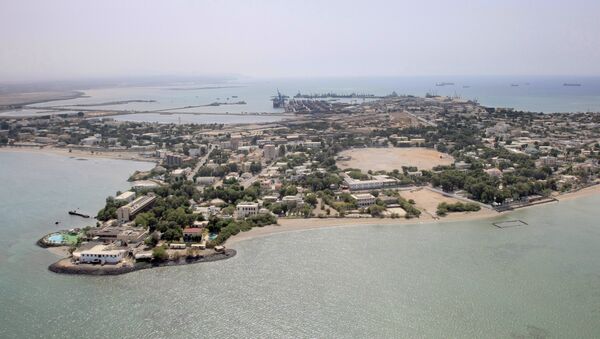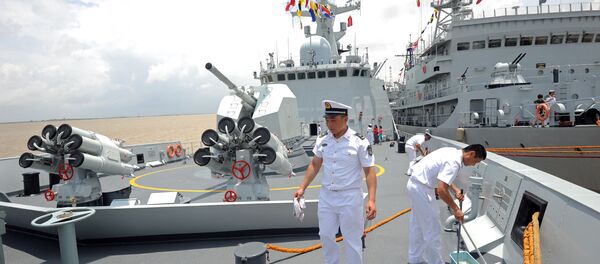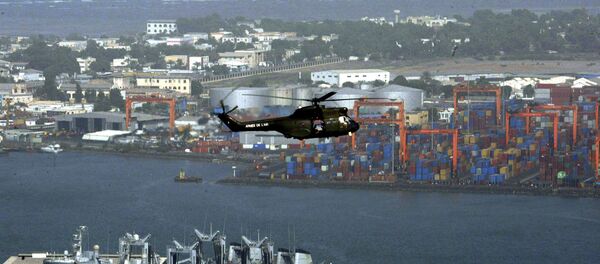Kuang Weilin, the Chinese ambassador to the African Union, suggested that China would consider sending troops to the border between the two East African countries, The Associated Press reported on Monday.
He stressed that China is willing to act as a mediator if needed.
In an interview with Sputnik, Russian military analyst Vladimir Yevseyev said that the strengthening of the role of China as a major political player in Africa and the Middle East would possibly further disturb the US, as with China rising, the US feels threatened.
However, the question regarding the ability of China to fully cope with the peacekeeper's mission between Djibouti and Eritrea, despite the solid experience of participating in UN peacekeeping missions, remains contentious.
“China is trying to claim itself as a political player who is able to resolve armed conflicts. Yet, it is not clear how much China will cope with this task because China has no great experience in such activities,” Yevseyev said.
In addition, he said that for the settlement of armed conflicts, it is necessary to have special equipment of the armed forces. These are units that have special light weapons and ammunitions.
Furthermore, the peacekeepers should also have the skills to communicate with the local population in English, and also extensive training of the personnel for such peacekeeping operations is required.
“I'm not yet sure that China is able to fully cope with this task. However, the fact that China declares its readiness for a peacekeeping operation indicates that China is gradually becoming a political center of power,” Yevseyev said.
Despite that, China’s offer to act as a mediator is seen by some as a positive diplomatic gesture.
An expert of the Diplomatic Academy of China, Ren Yuanzhe, noted that mediation in overcoming international conflicts has become a trend of Chinese diplomacy.
“The trend of development of Chinese diplomacy in recent years is characterized by activity, initiative and offensiveness. It consistently shows an example of the diplomacy of a major power. This applies equally to China's approach to international conflicts in the Middle East and South Asia,” Yuanzhe said.
He further said that the power of China's influence is gradually expanding from Asia to the whole world.
The conflict between Djibouti and Eritrea began in the 1990s. In 2000, Qatar deployed peacekeepers into the zone of the territorial dispute, but the conflict has since grown.
“Against this background, as a responsible major power, China has declared its position, because Africa occupies an important place in Chinese diplomacy. With the realization of the One belt, One Road project we want to bring development and prosperity to the African region,” the analyst said.
Meanwhile, the conflict between Djibouti and Eritrea is capable of splitting regional stability and is not conducive to the development of China's cooperation with African countries.
“If China does not come there as an intermediary, then it will be done by other, Western states,” he said.
“Participation and mediation of China in the protection of peace and stability in the region is based on non-interference in domestic policy, creating a favorable framework for the conflicting parties for negotiations,” Yuanzhe concluded.




